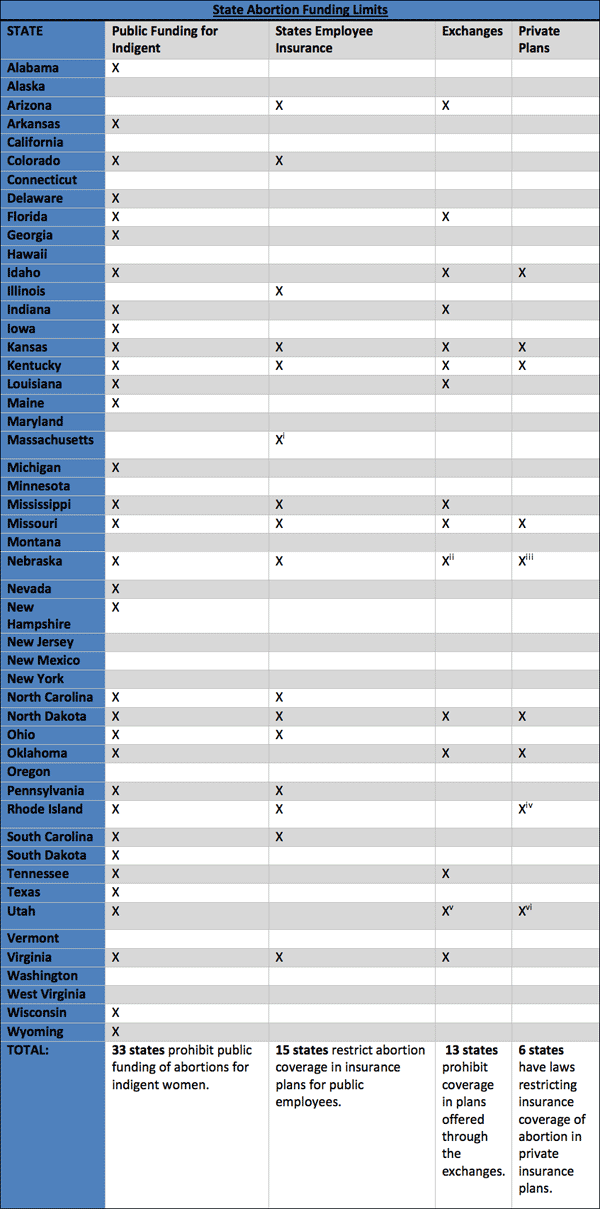With the introduction of the Patient Protection and Affordable Care Act (PPACA) and the individual mandate, which forces every American to purchase government-approved insurance plans, came another mandate which many see as an unprecedented threat to their liberty.
Buried within the individual mandate is the “abortion premium mandate.” This mandate requires that all who are enrolled in insurance plans which cover elective abortion must pay a separate premium which serves as a direct abortion subsidy. This mandate could potentially leave many Americans stuck between a rock and a hard place as they must choose between following their consciences and providing for the healthcare needs of their families.
 In March, the Department of Health and Human Services issued a final ruling regarding the healthcare exchanges. Despite the Hyde Amendment, the annual appropriations which bars federal funds from paying for abortions, Section 1303 of PPACA maintains the original wording which requires a separate abortion surcharge for each individual payer. The surcharge can only be described to the customer during enrollment and the insurance plans may advertise the total cost while not making known the abortion charge.
In March, the Department of Health and Human Services issued a final ruling regarding the healthcare exchanges. Despite the Hyde Amendment, the annual appropriations which bars federal funds from paying for abortions, Section 1303 of PPACA maintains the original wording which requires a separate abortion surcharge for each individual payer. The surcharge can only be described to the customer during enrollment and the insurance plans may advertise the total cost while not making known the abortion charge.
The law requires that new exchanges be functional by January 1, 2014. The final rule notes that the federal government will implement and operate an exchange itself in any state which refuses to create one.
However, with these rules set in place, a growing number of states are moving to bar abortion funding in their exchanges so that they can stop public dollars from subsidizing or extending coverage of abortion. Twelve states (AZ, FL, ID, IN, KS, LA, MS, MO, OH, OK, TN, VA) have taken action to prevent abortion from being included in their exchanges. Nebraska and Utah have passed laws prohibiting abortion coverage from the exchanges but they have not yet been put into effect. Along with states which have prohibited abortion funding from Medicaid and from state employee insurance and private insurance plans, these states are trying to insure that their rights as states and their citizens’ rights of conscience will be protected.
As all states are required to have an exchange up and running by 2014 or face the prospect of the federal government running an exchange for them, abortion coverage will no doubt be a highly contested issue as each state attempts to apply PPACA to their system. The new law and the liberty of the American people are in a precarious balancing act. In an attempt to preserve their liberty, it is likely Americans will continue to call on their states to take action in order to stop coerced funding of abortion.
—
[1] States prohibit coverage of partial birth abortions for public employees, except in cases of life endangerment and “substantial risk of grave impairment of her physical or mental health.”
[1] New law enacted but not yet in effect
[1] New law enacted but not yet in effect
[1] Enforcement permanently enjoined by court order.
[1] New law enacted but not yet in effect
[1] New law enacted but not yet in effect
LifeNews.com: This column originally appeared at the Lozier Institute.








